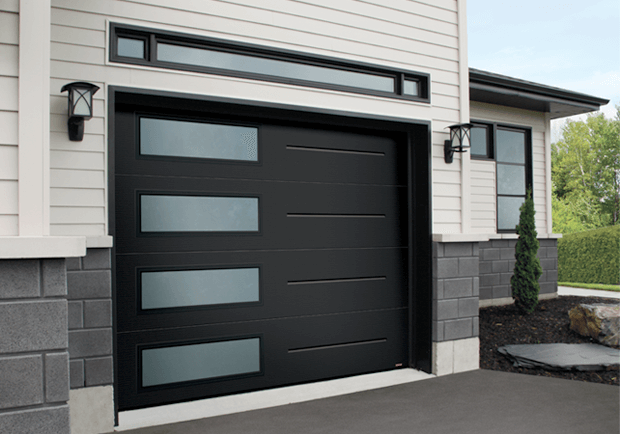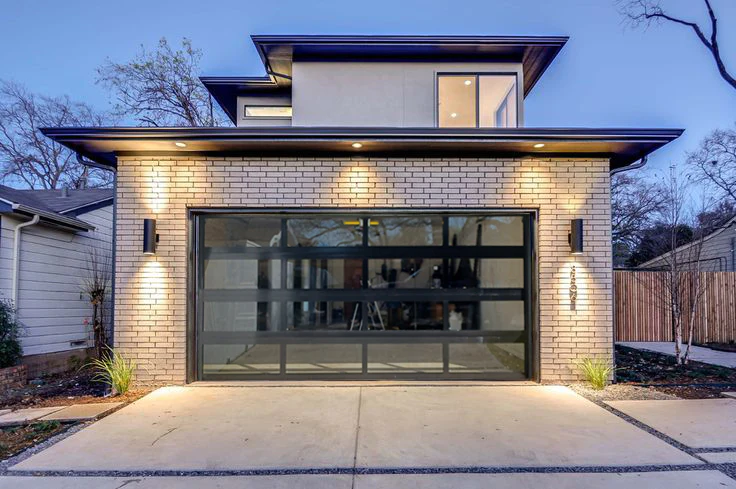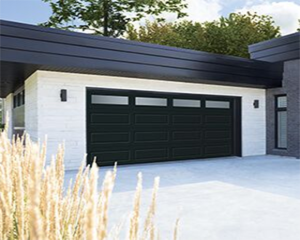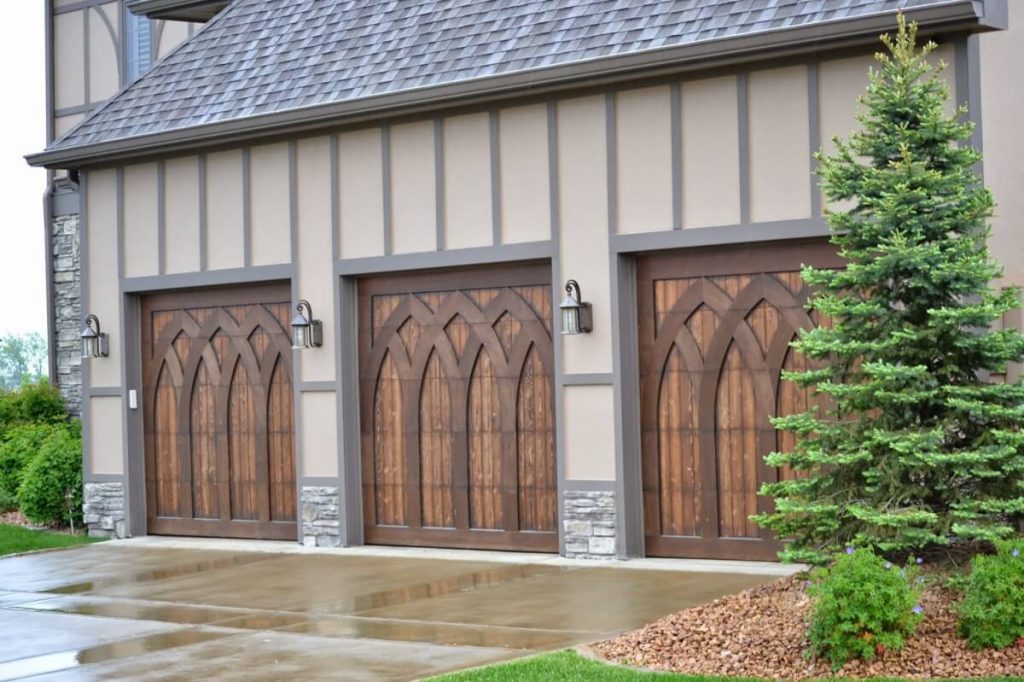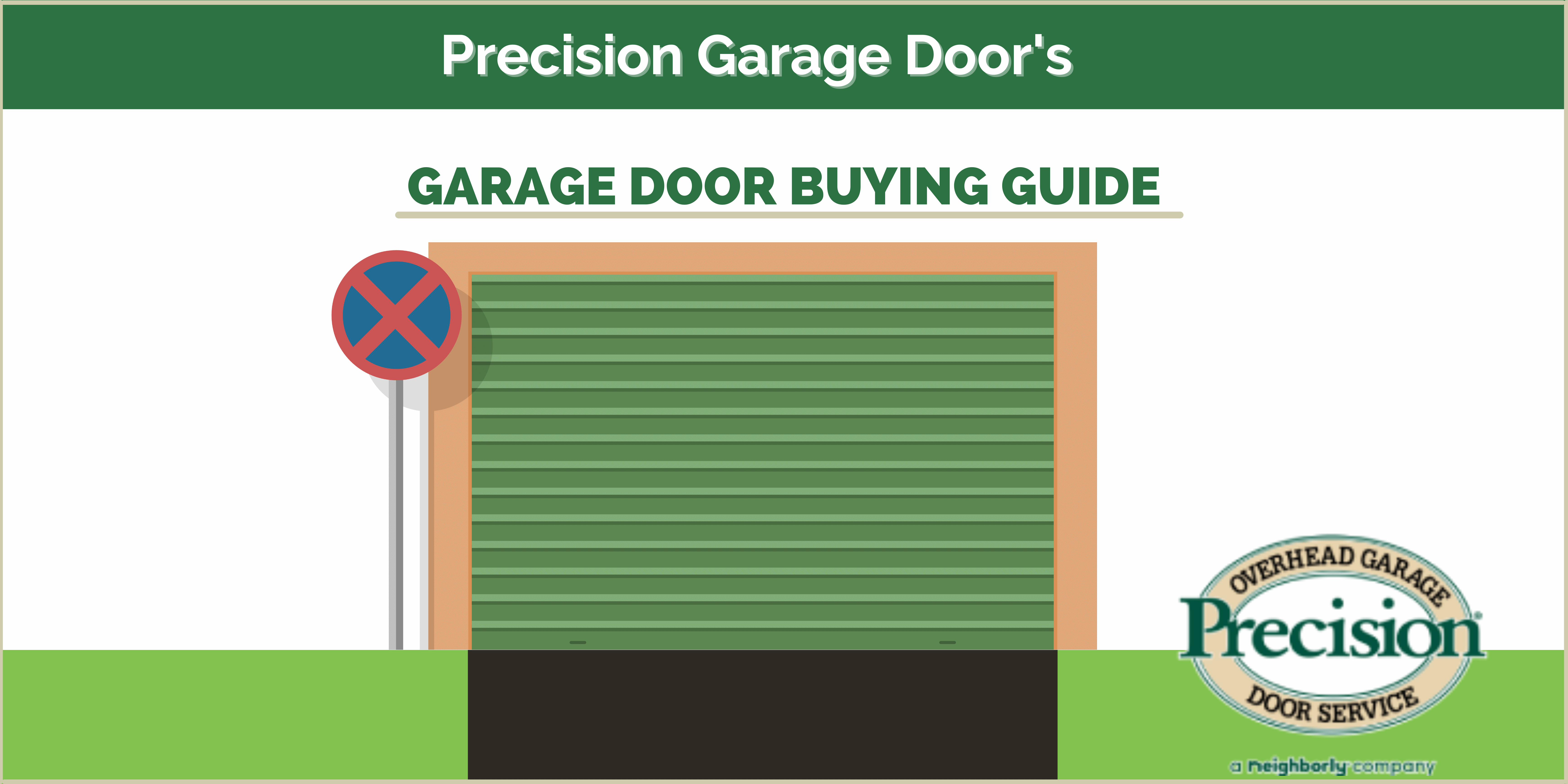Buying a garage door can be much more complex than on the surface, which is why we’ve created the Garage Door Buying Guide. A garage door must be the perfect fit for your home. It is both a driver of functionality and curb appeal. Since a garage door can take up a third of the front façade of your home, it’s important to consider the factors we have included here, so your new garage door is most cost-effective.
Garage Door Styles
The door must match the style of your home and the individual preferences you have. The most common stylistic choices include:
- Carriage House Garage Doors: Are rustic in design and often used for Victorian style homes, as well as use raised or recessed panels to add character.
- Contemporary Garage Doors: Modern style doors often incorporate aluminum, steel, glass, and wood; they tend to be quite durable as well as insulating.
- Traditional Garage Doors: Often made of steel or natural wood, traditional doors can feature a variety of panel styles along with decorative windows and a choice of finishes.
Paneling
Raised carriage house panels are popular, but there are many variations. Options include flush panels that are flat and slightly textured. The focus is mostly on the surrounding walls and not the garage door. To add depth, long raised panels enhance the look of a garage door, while short raised panels also add depth to compliment colonial, Tudor, and Victorian style homes.
Layering
The construction of a garage door determines how economical it is in terms of purchase price, installation, and efficiency. The primary choices for steel garage doors are:
- Single-Layer: A single galvanized steel sheet is used and constitutes the entire structure of the door.
- Double-Layer: An outer layer of galvanized steel is complemented by a backing of polystyrene or polyurethane for insulation and soundproofing.
- Triple-Layer: Add another layer of steel, so the insulating materials are sandwiched in between and protected. Triple-layer doors are also stronger and more secure than other doors.
In terms of insulation, consider an R-value of at least 3 if you live in a moderate climate, and an R-value of 10 or higher if your area sees extreme temperature fluctuations.
Materials
The most common garage door material options are:
- Steel: Steel is versatile in terms of design and can include moldings, cross-buck designs, and even a surface that mimics wood grain. It can also be painted in many colors.
- Aluminum: Is lightweight and durable, and easily integrates with glass and acrylic panels. There are numerous aluminum frame finishes on the market.
- Wood: Although it doesn’t have the strength of steel or fiberglass, wood garage doors can made moisture resistant. Redwood, cedar, and cypress are common varieties to spruce up the look of your home.
- Fiberglass: Is growing in popularity and highly resistant to humidity, moisture, and insects. Fiberglass also resists warping, is strong and stable, and can mimic the color and grain of oak, cherry, or mahogany.
- Composite Wood: Composite garage doors have a sandwich-type construction with an insulating core, with panels made of wood fibers and durable resins. They won’t rot, split, or crack.
- Vinyl: Lightweight and durable, vinyl holds color through all layers, so you don’t see scratches, and resists dings as well. It is weatherproof and most models have foam core insulation.
Color/Finish
When going garage door buying, you’ll notice most doors can be factory painted or you can color the door as a DIY project. However, achieving the best results requires a few steps. Using the wrong color or a poor choice can lead to performance issues and/or void the warranty. A professional can help you choose from viable paint options and provide a flawless finish. Factory finishes include high-quality paints and stains to match with your garage door and home.
Garage Door Parts & Safety
Size
A single-car garage door is typically 8 to 9 feet wide and 7 to 8 feet high, while double-car garage doors are typically 16 feet wide. Garages can also be built to accommodate doors 10 feet tall or more if you have a truck or recreational vehicle. When considering size, precisely calculate the required height and width of the framed opening (without the stop molding), left-hand and right-hand side space alongside the door, headroom, and backroom.
The size specifications vary with extension or torsion springs, and the specific model of door, so take accurate measurements and check with the dealer or manufacturer before making a purchase.
Tracks
Track options are important to consider. The track installed must fit the garage so that the garage door can travel smoothly and there’s enough headroom and sideroom. Choose a track based on the type of door and layout of the garage. Factors to consider include standard radius, vertical/high lift, and roof pitch. Also consider handles or windows, which can interfere with a track depending on type.
Garage Door Safety
Modern garage doors incorporate more safety features than ever before. Automatic garage door openers now include auto-reverse features and photoelectric eyes, which are sensors that detect if anything is in the way, and reverse the garage door when necessary. Manual doors are now safer too; they have a closed-spring design that can be safely adjusted with a drill or ratchet.
Look for pinch proof designs that avoid getting fingers stuck between panels. Safety features also include wireless keypads (the door will open with the correct code, even if you’re locked out) and red emergency cords to open the door manually during a power outage.
With these points in mind, you can find a garage door that offers peace of mind and performs reliably for many years.
Contact Us Today
At Precision Door Service of Las Vegas, we specialize in new garage door installation and have experience with all brands and models. We can provide a free in-home estimate as well. Our technicians can answer all your questions and provide the guidance needed to find the perfect garage door for you home. Call 702-637-2700 to get started.


